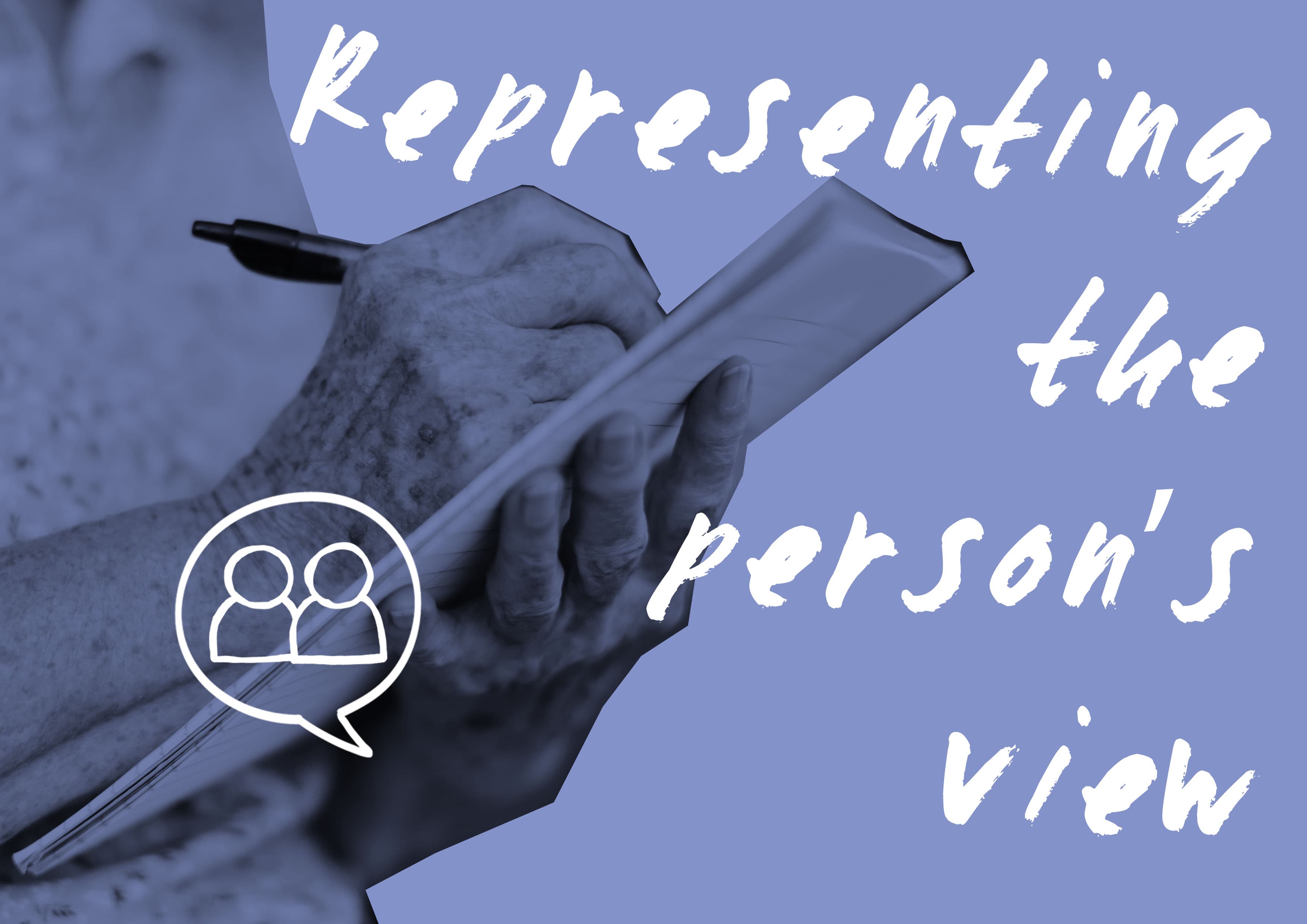Representing the person’s view

Writing about the person
Providing a fair and accurate representation of the service user’s account, explanation and perspective is central to offering a valid and ethical analysis. A common way of reporting a person’s account and perspective is to talk of the person in the third person (about her, him, them) and adopt a reporting voice. But of course there are many decisions to be made about exactly how to represent someone’s view. Consider the different ways of reporting a relatively straightforward situation. How do even quite minor differences affect how the person is represented?
- Letitia said she did not go to school because she was afraid.
- Letitia stated that she did not go to school because she was afraid.
- Letitia claims that she did not go to school because she was afraid.
- Letitia said, ‘I didn’t go to school because I am afraid.
Perhaps there is no significant difference in meaning or tone, between 1 and 2, although stated sounds more formal than said. The use of ‘claims’ in 3 suggests that the social worker is not necessarily convinced on what Letitia has said. The use of direct speech in 4 provides a slightly different tone : by using the first person account ‘I am afraid’ puts Letitia more centre stage in the account, perhaps drawing the reader in to her feelings in a way that third person reporting does not.
Including the person’s perspective
At a more fundamental level, a core ethical commitment is to ensure that the analysis represented in social care records captures the person’s perspective. Compare the pairs of statements below.
a. Michael has low attendance at school and is disengaged with other pupils.
b. Michael has been to 11 primary schools and feels like he’s always losing friends.
a. Michael has stolen a previous foster carer’s car in the night.
b. Michael felt frightened and alone about being in foster care and took his foster carer’s car to see his mum. He was shaken and deeply regrets his actions.
Whilst the a) statements may be factually correct, the b) statements emphasise Michael’s feelings which help to explain his actions. Including such person-oriented statements brings a crucial layer of insight to the written analysis which is important in itself. It will also be particularly important for the person- in this case Michael- when coming to read and understand his situation and why particular actions were taken, in the future.
These examples are taken from The language of social work
Writing to the person
A very different way of writing which is rather than write in the third person about someone, is to write in the second person to someone.
Consider the extract written by an independent reviewing officer to a young person about their situation. What is the effect of writing to a person?
Rachel, your social worker said that you would like to return home to your parents but you are happy in your foster placement. You enjoy the food that your foster carer makes and you enjoy going to the library and to the park. You have said that you are not happy living with your elder sister as you say that she is not telling the truth about your parents. You have also said that she hits you and is not nice. Gillian Lucas, Independent Reviewing Officer
This example is drawn from the WiSPER resources. You can access a video with Gillian Lucas the reviewing officer and her views on why writing to the person, in this case a young person, rather than about the person, is important.
The Independent Care Review The Promise (2018) emphasises the need for the voices of children to be heard and clearly represented in written records. It also draws attention to the need for written records to include explicit expressions of love and care towards the person being written about. There are several projects taking place at the moment in Scotland which are working to put love at the centre of all recording practice. For more information, explore:
- The Love Inc project
- Write Right About Me (WARM) (contact Miriam Smith MirSmith@aberdeencity.gov.uk for details)
Practice point: The person’s view
Think of or reread a recent record (a case note, an assessment report).
- If you have reported about a person’s account and perspective, notice whether you have used direct speech, e.g. she said ‘I am worried’ or indirect speech ‘she said she was worried’ and consider how the language you have used changes the meaning or tone in any way.
- Focus on whether you have used the third person (she, he, they) to write about them or used the second person (you) to write to them and the possible effect of choosing one over the other.
- Notice if the record includes expression of care and love about the person. On the basis of your reflections, are there any changes you would make to the record? Why/why not?
Iriss is a charitable company limited by guarantee. Registered in Scotland: No 313740. Scottish Charity No: SC037882. Registered Office: 5 South Charlotte Street, Edinburgh. EH2 4AN.